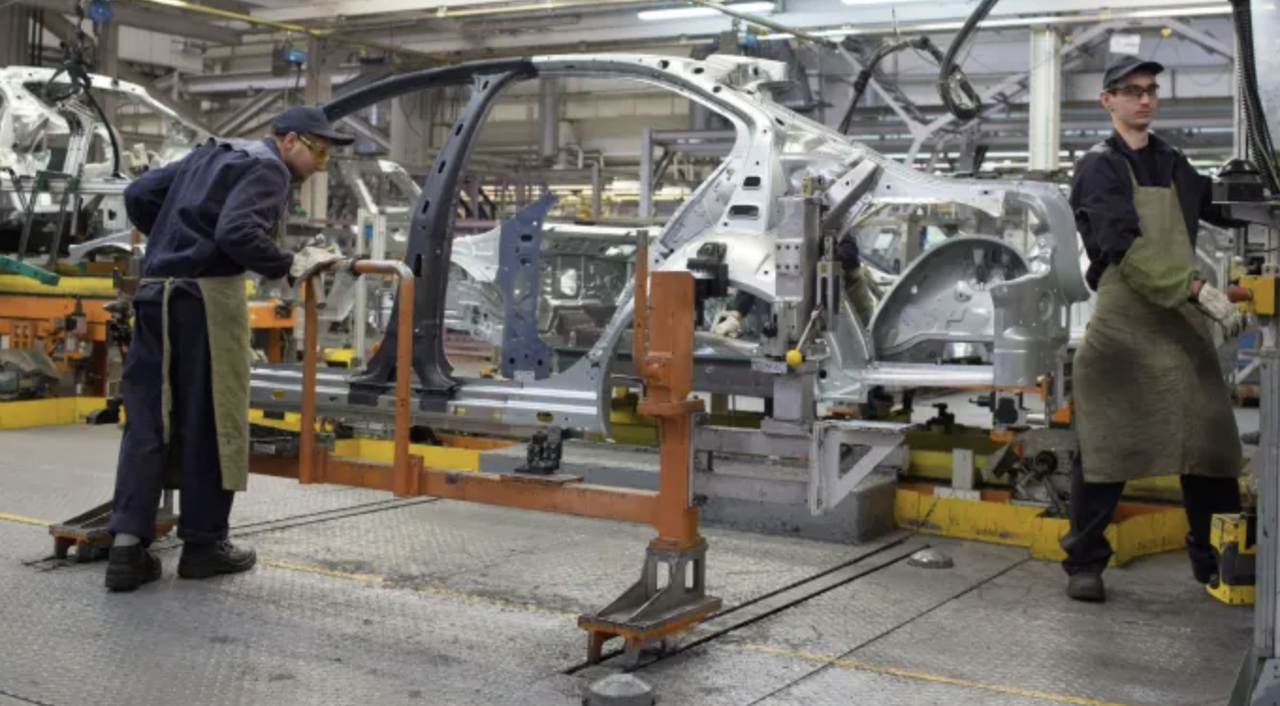Since it initiated its sanctions campaign against Russia back in 2014 in response to the annexation of Crimea, Washington has insisted that its measures aren’t aimed at the Russian people, but at the Kremlin and the billionaire oligarchs with alleged ties to President Vladimir Putin.
But among the Russian people, conspiracies are beginning to fester as an automobile factory owned by Oleg Deripaska, who was recently coerced into selling his controlling stakes in Rusal and En+ by the Treasury Department over his alleged involvement in the Russian electoral interference (which has since been disproven by the Mueller report), is teetering on the edge of bankruptcy. If it goes under, it could destroy 40,000 Russian jobs and become the first major bankruptcy of a formerly thriving Russian industrial firm since the first round of sanctions was imposed five years ago.
Oleg Deripaska
Employees at the GAZ truck and van plant in Nizhny Novgorod are beginning to grumble that the Treasury Department’s refusal to grant a waiver that would allow it to avoid bankruptcy is part of a ‘conspiracy’ to force it out of business with the aim of allowing Ford to wrest control of a larger slice of the Russian commercial vehicle market, according to the FT.
Plastic sheets cover idle machinery and a production line is eerily still, laying bare the damage US sanctions have inflicted on one of Russia’s biggest automotive factories. And among workers at the GAZ truck and van plant in Nizhny Novgorod – which survived Nazi bombing raids during the second world war but is being pushed toward collapse by the US Treasury measures – conspiracy theories abound.
The factory has been targeted because of Washington’s sanctions against its owner, Russian oligarch Oleg Deripaska, over his alleged links to the Kremlin. But disgruntled employees dismiss criminal allegations against the businessman. Instead, they see a US plot to undermine the Russian automobile brand.
“Ford has just made a decision to leave the Russian passenger car market, but they have decided to maintain production of commercial vehicles,” said Oleg Rostov, a manager in the plant’s assembly shop. “Maybe America wants to replace Russian Gazelles with Ford vans,” he said, referring to the Russian company’s popular model.
The backlash over the fate of GAZ, which mostly manufactures foreign-brand cars in partnership with companies like Daimler and Volkswagen, shows how the US sanctions campaign has had the opposite of its intended effect: instead of weakening Putin, it has sparked a “nationalist fervor” which has helped bolster the president’s popularity at a time when tax hikes and cuts to social services have engendered an unprecedented level of bitterness among the population.
Factory workers have even written to the US embassy to request a meeting about the fate of GAZ, but have been rebuffed.
“We feel like the goal of the US government is to stir up an explosion of public anger, to encourage people to do something…to protest,” said Sergei Kadrov, a senior production manager at the GAZ factory, which builds trucks, buses and Volkswagen cars in partnership with the German carmaker.
Mr Kadrov and his colleagues had written to the US embassy in Moscow to ask for a meeting with the ambassador about sanctions but the embassy recommended they talk to the Russian government instead, he said. A US state department spokesperson told the Financial Times that sanctions “are not aimed at the Russian people.”
“We have been very clear with the Russian government: Our sanctions will remain in place until Russia reverses the actions that caused us to impose them in the first place…We will continue to impose costs on Russia until it ceases its reckless behaviour,” the spokesperson said.
Further fanning speculation about a conspiracy, Deripaska has claimed that his offer to give up his controlling interest in GAZ, Russia’s largest manufacturer of commercial vehicles, so that the factory might be spared from ruin, was inexplicably refused.
GAZ, Russia’s biggest commercial vehicle manufacturer, will face almost certain bankruptcy, according to Mr Deripaska, unless he is able to strike a deal with the Office of Foreign Asset Control (Ofac), the US sanctions body. GAZ is currently operating under a temporary Ofac waiver, brought in after Mr Deripaska was sanctioned to allow investors, lenders, suppliers and customers to wind down their relations with the company. The waiver expires on July 4.
Mr Deripaska said he was willing to give up control of GAZ in order to save it, but that Ofac was not willing to negotiate.
Officials have estimated that the factory’s closure would lead to the loss of 40,000 jobs, including factory workers and those who support the supply chain that feeds the factory. “We always remember that US sanctions that were focused on one person affect hundreds of thousands of people,” one worker told the FT.
The irony, again, is that Russia has managed to adjust to the sanctions by shifting to locally manufactured products. Instead, the sanctions have merely hurt the US’s image among Russians. A Pew Research poll has shown that since the first round of sanctions were imposed, the percentage of Russians with a favorable view of the US has slumped to 36% from more than 50%.
It’s just the latest sign that the American sanctions campaign against its rivals is a “massive strategic error,” as Putin once described it.
via ZeroHedge News http://bit.ly/2L45o5T Tyler Durden

